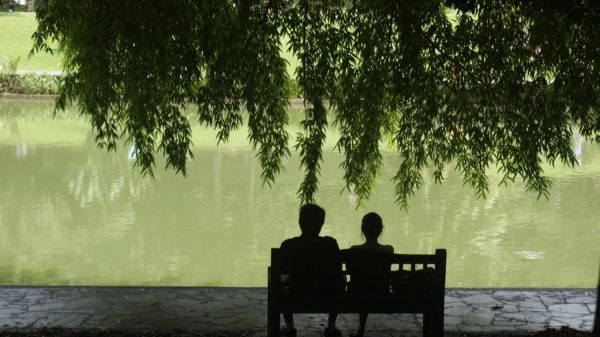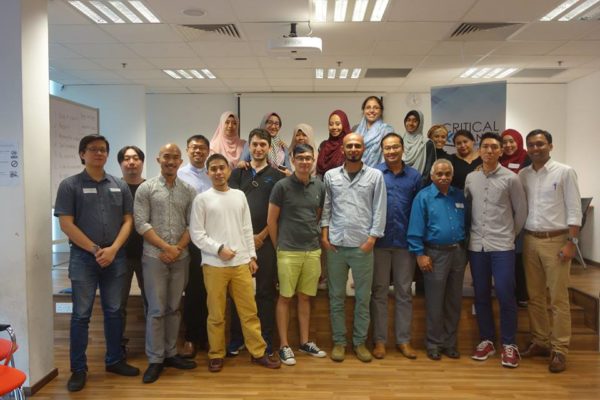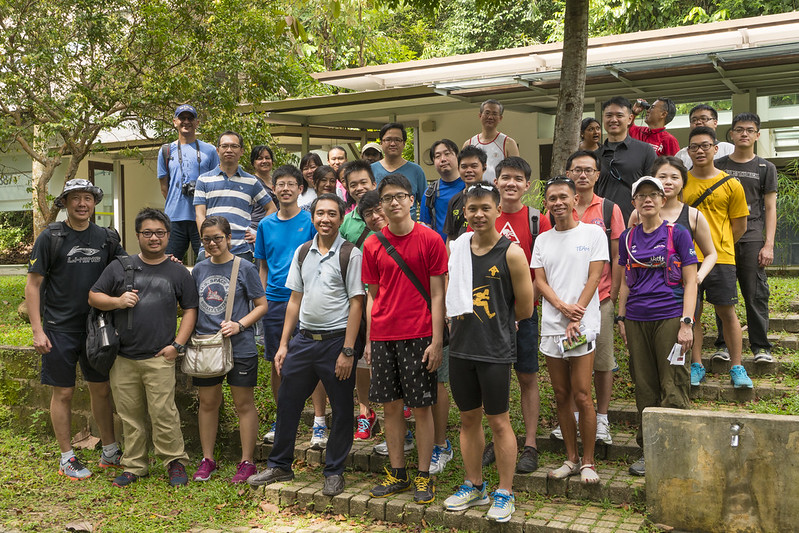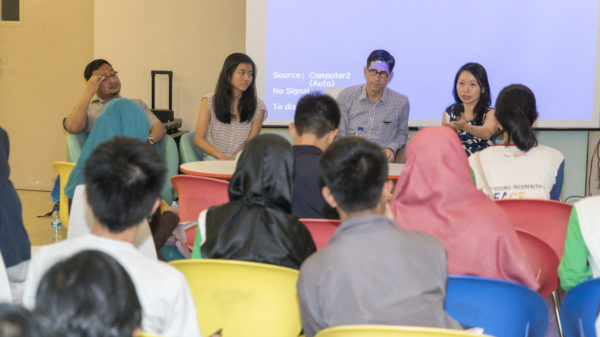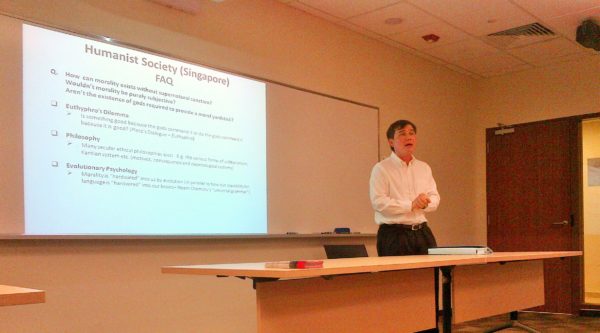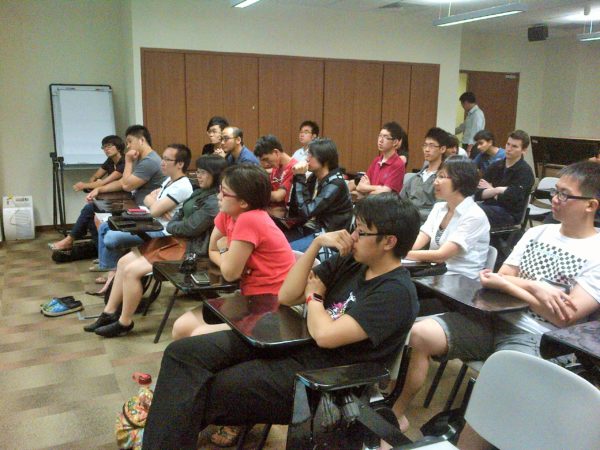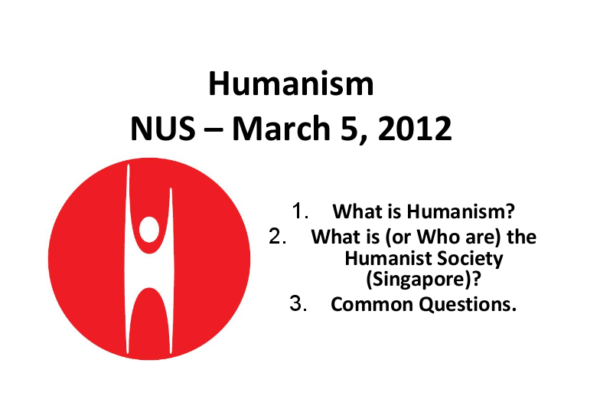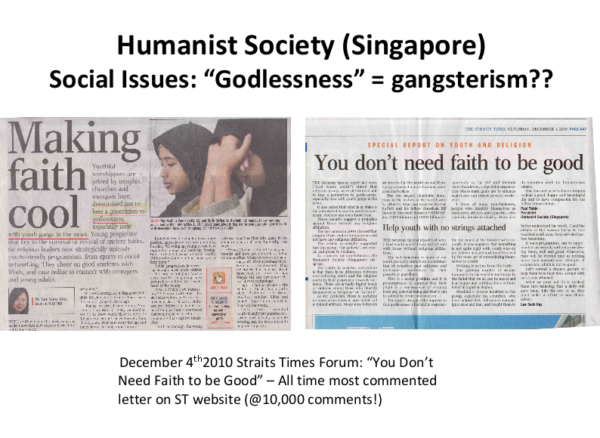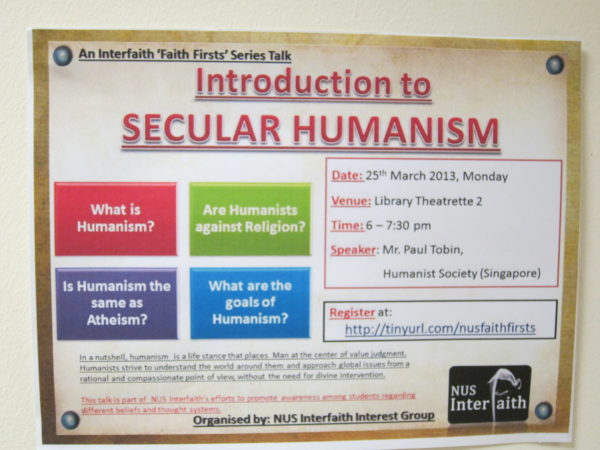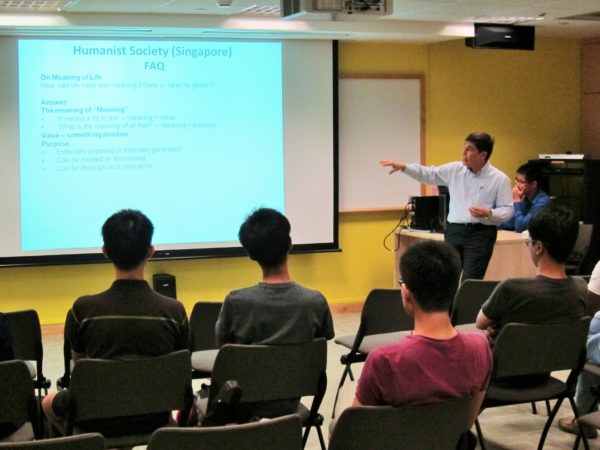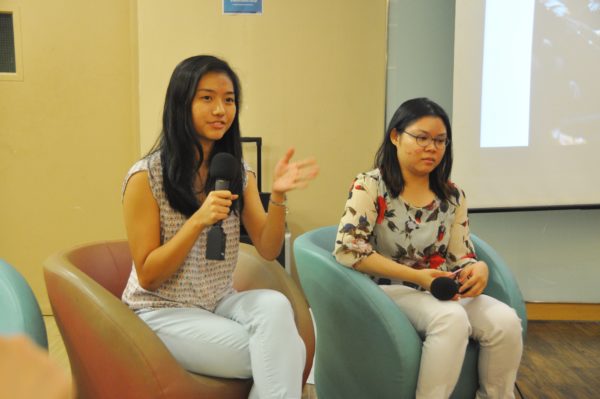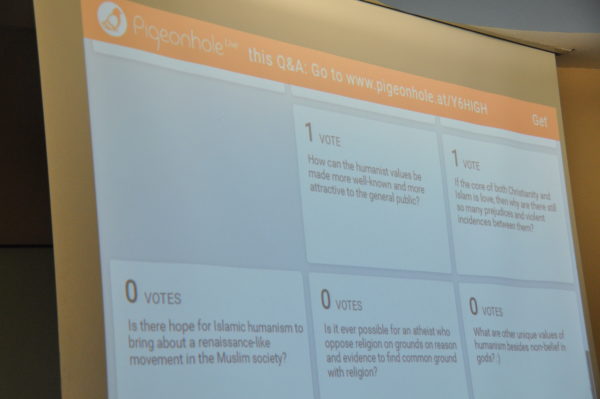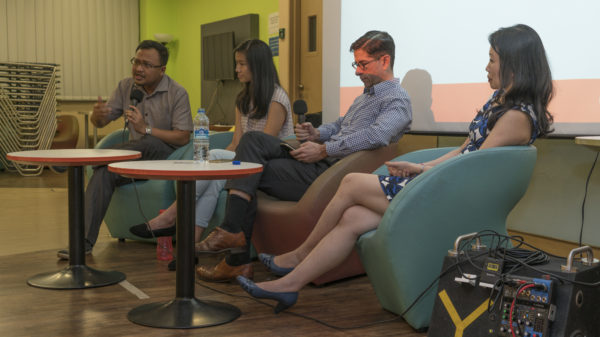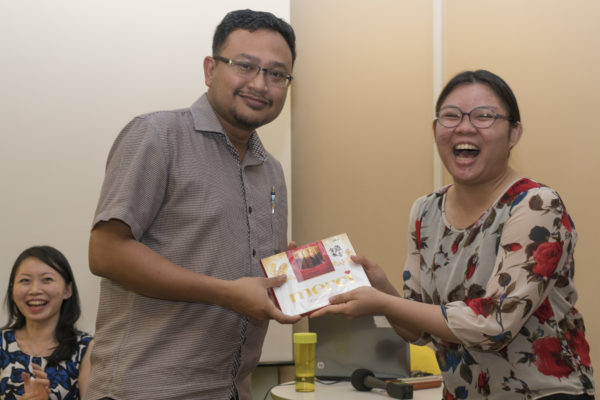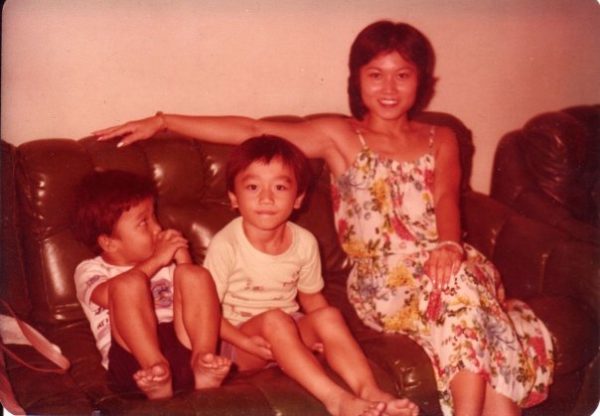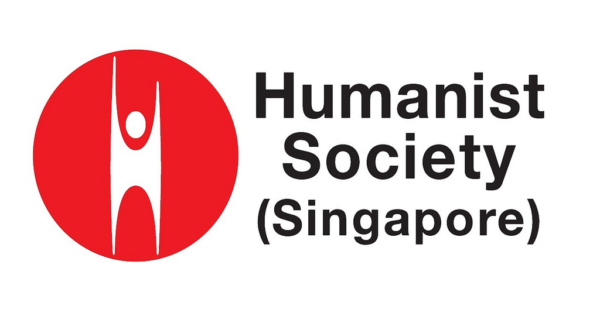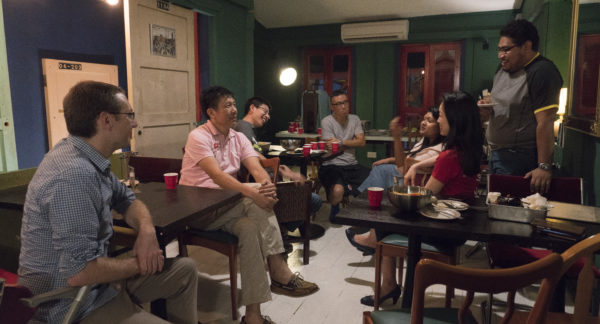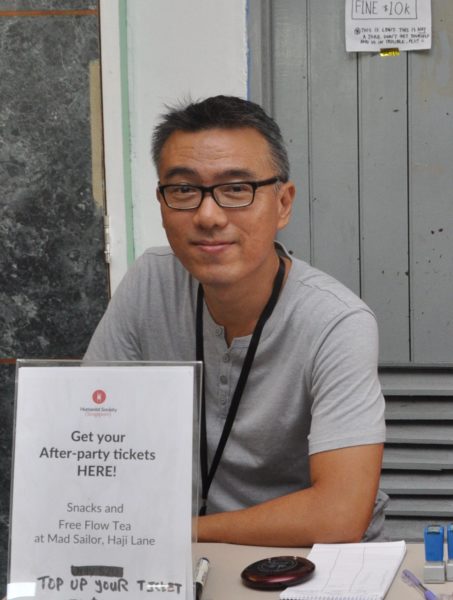We held a lunch networking session today to discuss the Humanist Society’s plans of setting up a resource centre. The resource centre aims to provide support for non-religious people in distress. We opened the meeting to people from all ages and all walks of life. About 20 people attended the discussions, held at Safra Toa Payoh.
In February, the Humanist Society placed an advertised Facebook post calling for resource centre suggestions. Many of those who responded wanted the centre to provide support in the form of counselling, meditation, temporary shelters and conflict resolution. They were also looking for a space to provide learning opportunities, such as establishing a small library with a dedicated list of books, holding workshops / classes and providing free tuition for low-income families. Others even suggested holding celebrant services, other interest group activities, and sharing a physical place with other NGOs,
Following the Facebook post, the Humanist Society held internal discussions with educators, psychologists and social workers within our network. We concluded that the Society should not replicate existing professional services. We should instead complement professional services by providing informal support in the form of first responders. Some have pointed to existing practices in religious institutions and NGOs. For example, a trained professional can provide basic training to first responders who could then escalate a serious case to professional help when needed. This is an existing model the Society can take up. These first responders do not provide solutions. They only act as a listening ear.
At today’s discussion, the 20 participants broke up into 3 separate discussion groups to discuss the next steps. The first group proposed that the resource centre could start with a tighter list of items, instead of trying to fulfill all requests gathered from the Facebook post at once. It can start with establishing a small team of first-responders and provide a listening ear to anyone who feels troubled.
The first group felt that great care must be taken to explain the resource centre’s purpose, striking a balance between being specific (and searchable in Google) and what is acceptable to the general public. It should not be discreet because we are not doing anything illegal. At the same time, it cannot be antagonistic because it could attract the wrong type of volunteers and draw public backlash in a conservative country. There was also some debate about whether to keep the resource centre religion-neutral, or whether the Humanist Society — as a civil society and not a public service — should stay true to its original purpose and focus on helping the non-religious. One way to frame the resource centre, the first group concluded, was to describe it as a place for people “exploring non-religious alternatives to meaning in life.”
The second group discussed methods to seek funding. Establishing a resource centre would require some money and a good fundraiser is needed to drive the Society’s fundraising efforts. Once the funds are secured, the Society could look at temporary places to stay, such as hostels and backpacker hostels. The second group said it is important to present ourselves as a diverse community with different beliefs.
The third group noted that the Humanist Society currently lacks the expertise to provide such support. It suggested that in the meantime, it can rely on support in online forums. Although such forums already exist, they are very scattered and perhaps one dedicated forum could be set up to address people seeking psychological and social support. The third group also said that information for people seeking help should be made easily available online.
The first group also argued that online counselling could form the bulk of support efforts. A physical face-to-face meetup can be held, “friendship bench” style (see more above), at a central location such as the Hanis Cafe at NLB in town. After the initial contact has been made, the first responder can follow up with a mixture of online and physical engagement. Such an arrangement can ease the workload of first-responders who are unpaid volunteers with day jobs.
At the end of our discussion, a total of 10 people signed up to be first responders for our resource centre. We will be continuing more discussions in the months ahead, refining our purpose and generating more action items. If you have any suggestions for us, please contact us at info@humanist.org.sg




